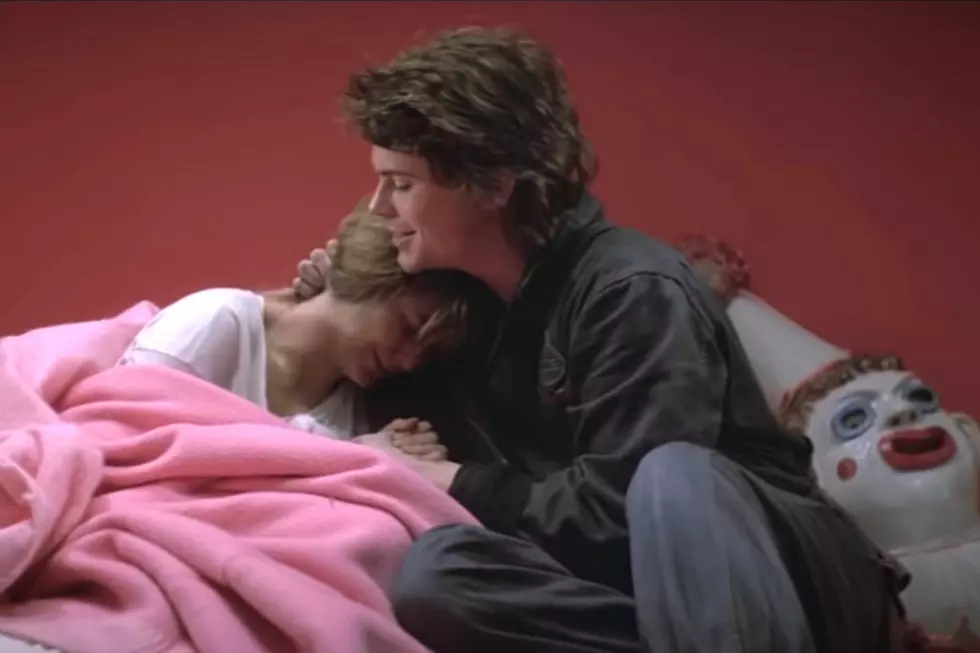
35 Years Ago: How Everything Went Wrong With ‘St. Elmo’s Fire’
Joel Schumacher's initial concept for St. Elmo's Fire was more of a political statement, but that didn't really happen.
The studio pushed back against some cast choices. The late writer and director also had one actress who was supposed to assume the role of a chaste character arrive pregnant and another forced into rehab before she could portray someone with an on-screen substance-abuse problem.
The cast instantly clicked offset, until a nickname they never wanted drove the group apart. The movie made millions, yet was poorly reviewed.
Circumstance, it's fair to say, kept getting in the way for St. Elmo's Fire, which premiered on June 28, 1985.
"It was the height of Reaganomics," Schumacher told Entertainment Weekly in 2010. "The attitude became 'I'm rich, fuck you.' And all of these kids were coming out of universities with 20-year plans. I felt sorry for them. I was listening to their conversations and I thought, 'What must it be like to be spit out of these universities, thinking 'I better make a lot of money'?"
Schumacher, who never went to college, enlisted the help of a Duke University intern named Carl Kurlander to co-write a spec script on the topic. Kurlander arrived with his own screenplay sparked by a bout of unrequited love for a waitress during a period when he worked as a bellhop at the St. Elmo Hotel in Chautauqua, N.Y.
Schumacher's sharp criticism of contemporary youth was already beginning to lose its edge, as the film became more about how a group of recent Georgetown University graduates was adjusting to the new responsibilities of adulthood. The clearest connections back to his original idea are probably found in the character of Alec, who is such an empty-suited careerist that he's willing to deny his own bedrock political beliefs in the name of "moving up." But really, most everyone ended up possessing many deeply unsympathetic traits.
Next came pitched battles with Columbia Pictures.
Watch the Official Trailer for 'St. Elmo's Fire'
Fresh off of 1983's WarGames, Ally Sheedy was quickly approved to play a budding architect named Leslie who is reluctant to marry. Nothing else came easy. Sheedy recommended Judd Nelson, who was also shooting The Breakfast Club with her at the time. But the studio couldn't see him as Leslie's yuppie boyfriend Alec after being cast as a loner burnout in John Hughes' film.
Columbia Pictures also didn't want Emilio Estevez, another Breakfast Club star who ultimately assumed the role a law student named Kirby who works as a waiter at St. Elmo's Bar. Instead, they wanted Rob Lowe, who all but begged Schumacher for a spot. "He came in to see me three times," Schumacher told Entertainment Weekly. "He poured his heart out, and I thought, 'This poor child. No one is ever going to want it as much as he does.'"
Perhaps in an attempt to get into character for the role of aging frat-boy Billy, Lowe reportedly arrived for his audition with a six pack of beer. He sensed, even then, that St. Elmo's Fire could open up new career avenues.
"It was ahead of its time," Lowe told Entertainment Weekly in 2019. "I look back on it and laugh at the hair mousse and the styles, but it's funny to see how many shows it influences. When I watch Stranger Things, I definitely see the call-backs to St. Elmo's Fire. It was a great time; it was a great time to be alive. The '80s were fun, and I'm glad that the movie still exists."
Schumacher knew he wanted Andrew McCarthy for Kirby's moody roommate Kevin, a columnist for The Washington Post. "For me, there was no one else on the planet who had that mix of smarts, gentleness and sarcasm," he added. Casting Mare Winningham as the virginal social worker Wendy proved to be a challenge, since she arrived expecting her third child. Schumacher was forced to clothe her in baggy Laura Ashley dresses.
Then there was Demi Moore, who had her own issues. "I was concerned about her safety and her health," Schumacher told Entertainment Weekly. "I'm not going to talk about her personal problems at the time, but I didn't want to give her any money that might support her demise. I felt like I had to do what was moral, so I fired her before we started shooting. She fixed the problem quickly, and it stayed fixed."
Moore ended up securing the role of Jules, a coke-snorting junior banker, but only after getting herself clean. "I think the irony certainly was not lost on me,” she later mused.
Watch the 'Marriage Is Obsolete' Scene From 'St. Elmo's Fire'
Schumacher was right to fight so hard. The strength of the movie, despite a script filled with sometimes thoroughly unlikable figures, was in its casting. "I may not be a genius director," Schumacher admitted. "I may not be the smartest man in the world, but I will match my casts with anyone's."
They became fast friends, long before a reporter christened them the "Brat Pack."
Winningham, who went on to appear in the lightly regarded Tom Hanks vehicle Turner and Hooch, later told the Baltimore Sun, "When I think of exhilarating creative experiences, making those films isn't up there. I remember them for the people I met."
Enter David Blum, who was writing a personality profile on Estevez for New York magazine when he stumbled into this emerging new dynamic. Lowe and Nelson joined them for what became an infamous night of carousing at Los Angeles' Hard Rock Cafe. The resulting cover story, titled "Hollywood's Brat Pack," framed a loose amalgam of actors that also came to include Molly Ringwald, Anthony Michael Hall and James Spader as image-obsessed, out-of-control youth.
"It bothered the writer that these guys were good-looking and had money, and all the girls wanted them," Schumacher told Entertainment Weekly. "And his story, for better or worse, created the term the 'Brat Pack.'"
None of them, it seemed, thought much of the term. Still largely inexperienced with fame, they certainly had no idea the kind of damage this association would ultimately cause.
"I was in complete shock when that Brat Pack thing came out," Sheedy told the Associated Press in 2000. "I was extremely naive on some of those interviews – and actually came off as a little bit stupid. I didn't see it coming."
Watch the 'Our Time at the Edge' Scene From 'St. Elmo's Fire'
Members of St. Elmo's Fire cast became furious, as they got pigeonholed professionally and then managers began encouraging them to work separately so as not to be more closely linked. There were other troubles. Despite representing the briefest of career moments, it started to seem like something of a curse.
"I don't think I've seen any of these people since we finished St. Elmo's Fire," McCarthy told People in 1999. "And I've never met Anthony Michael Hall."
Nelson apparently hasn't forgiven Blum. "I would have been better served following my gut feeling and knocking him unconscious," he said on Bret Easton Ellis' podcast in 2015. "It just seemed like we were like fruit picked too soon, and then blamed for being picked too soon."
It didn't help that the movie itself often portrayed them as either a feckless partier (Billy), a stone-cold stalker (Kirby), a perhaps-suicidal congenital liar (Jules) or an unrepentant philanderer (Alec). Still, the bedrock camaraderie that seems to solve all manner of cretinous and frankly pitiless on-screen missteps was, in fact, very real.
"You could tell we were all really good friends and we all really cared about each other, and that we were a gang," Lowe told Entertainment Weekly. "That's what we played on screen and I think it really was captured. It felt like we were all very much in the same place in our lives: all very ambitious, all looking to the future and wondering what the future would hold."
It was enough to push St. Elmo's Fire to almost $38 million at the box office. Schumacher later noted how impressive those numbers were "when you consider that a ticket cost $2. That would be like $150 million today. But it didn't get one good review. Trust me, I read all of them."
In time, Schumacher came to appreciate St. Elmo's Fire for what it became, even if the finished product ran afield of his original plan. After all, it tended to echo the cast's reality.
"Everyone has their gang, and you think you're going to be friends forever. You really do – and then life happens," Schumacher told Entertainment Weekly. "It's all there in that scene where Ally says, 'I just wish everything could go back to the way it used to be!' But of course it doesn't, and of course it can't."
Top 25 Movies of Summer 1984
More From Kool 107.9










